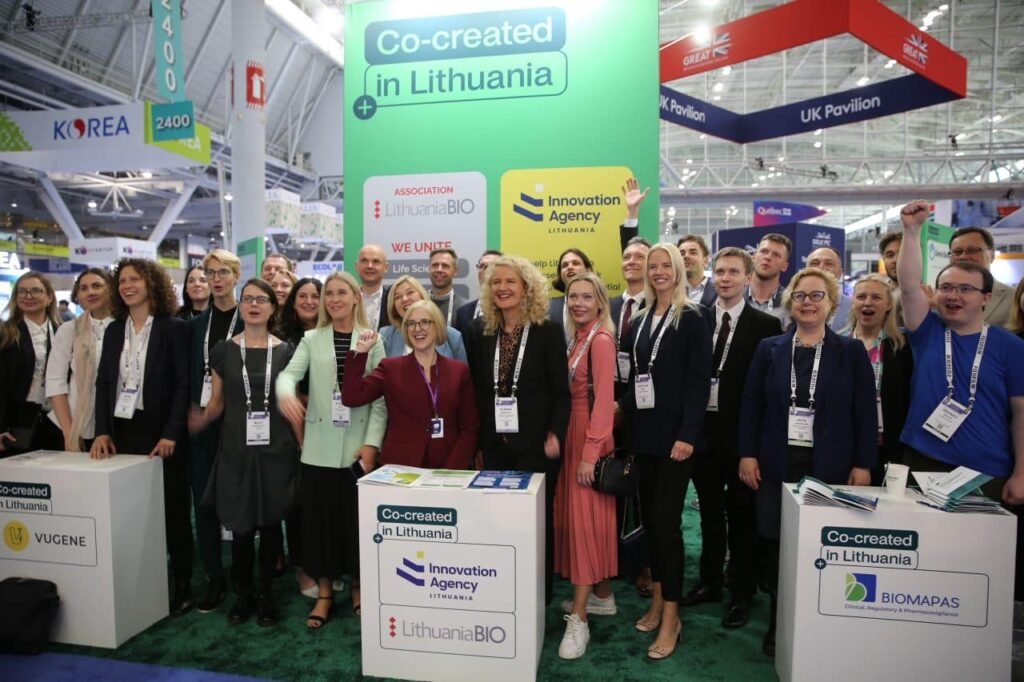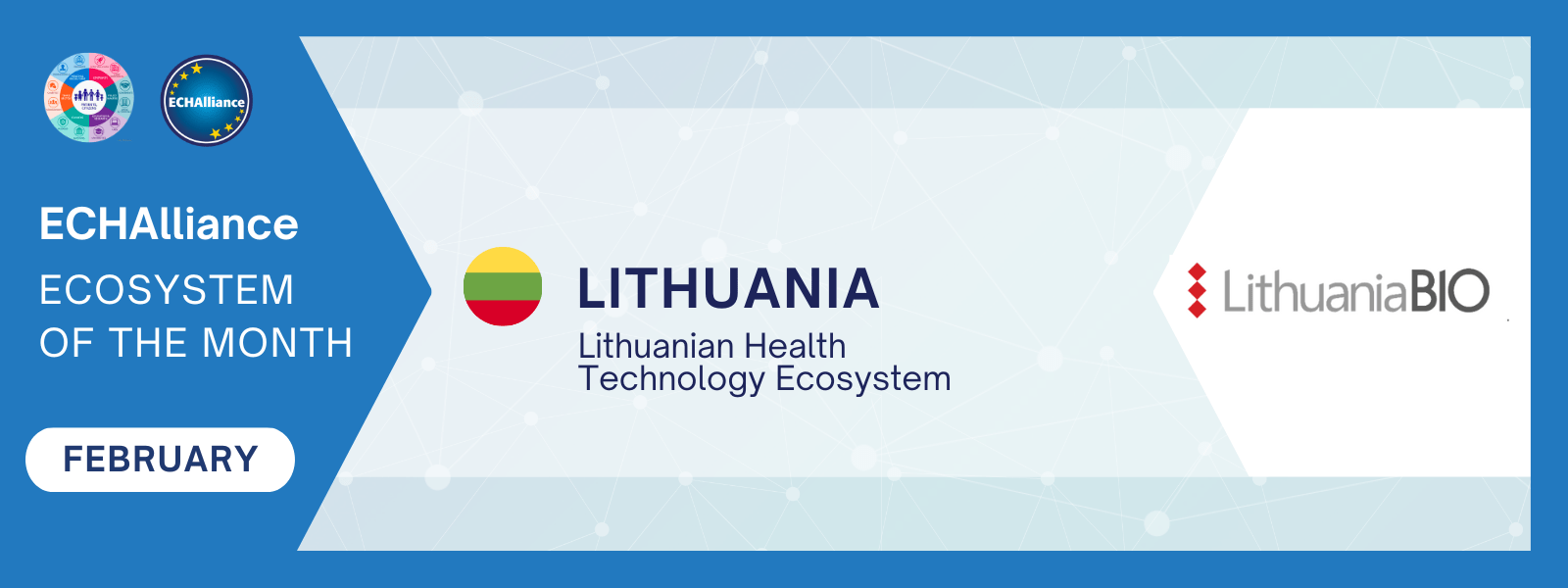What is the approximate stakeholder breakdown of your ecosystem?
The healthcare ecosystem in Lithuania compresses public and private stakeholders including healthcare providers, government agencies, insurers, pharmaceutical companies, medical device manufacturers and research institutions and start-up hubs.
One of the main NGO actors in the field of life sciences and innovative health technologies is our Association LithuaniaBIO. LithuaniaBIO is a non-governmental biotech cluster node organisation that represents companies, research and study institutions and health care institutions in the fields of diagnostics, health technologies and biotechnology, which include molecular technologies for medicine and biopharmacy, advanced applied technologies for personal and public health, advanced medical engineering for early and therapeutic treatment, safe food and the use of biological resources and by actively participating in the processes of new product development, technology transfer and commercialization. LithuaniaBIO promotes the wider application of life sciences and biotechnology in the Lithuanian economy in solving global environmental and quality of life challenges.
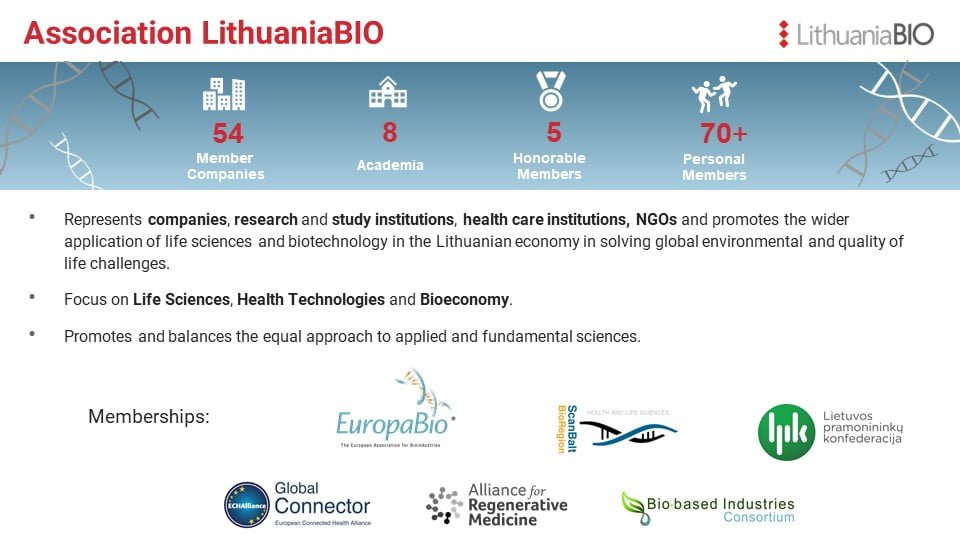
The Lithuanian health care stakeholders are working together to provide quality services, promote public health and drive advancements in medical research and technology.
Who are the top 3 champions from your Ecosystem?
We have several actors that strongly drive the ecosystem, mainly: Government and Regulatory Bodies (Ministry of Health, Innovation agency, Ministry of Economics and Innovations), Healthcare Providers and Healthcare Technology providers and National Associations.
One of the outstanding examples of successful collaboration between healthcare institutions and the private sector occurred in 2020 when researchers at the Lithuanian University of Health Sciences partnered with specialists from the company Brolis Semiconductors to develop a cutting-edge laser technology for measuring blood parameters. This innovation offers a non-invasive method to collect real-time information on changes in blood, eliminating the need for needles and complementing existing clinical techniques. Expected to be particularly beneficial for patients with diabetes and other chronic conditions, this technology will streamline their daily routines. Additionally, it will assist athletes in monitoring essential metabolites dynamically, enabling them to tailor training programs, recovery processes, and pre-competition protocols to their individual needs.
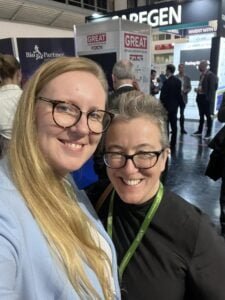
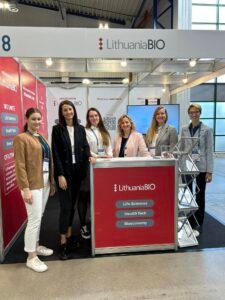
What EU funding/collaboration are you involved with, or you would like to be part of?
What are the key priorities and themes for your ecosystem?
A critical priority for the entire ecosystem is ensuring access to open secondary health data. This accessibility is instrumental in fostering the development of novel medical solutions and personalised treatments. Furthermore, it plays a pivotal role in advancing digital health technologies and telemedicine solutions, thereby enhancing healthcare delivery overall.
Ensuring access to open secondary health data is crucial for fostering innovation and supporting medical research, thereby driving advancements in healthcare technology, treatments and patient care. Initiatives that promote collaboration between academia, industry, and healthcare providers play a pivotal role in this endeavour. Institutions like the Vilnius University Faculty of Medicine and Lithuanian University of Health Sciences are instrumental in training healthcare professionals and conducting medical research across various fields. Collaborating with businesses and experts in biotechnology holds the potential to create new treatment solutions, further enhancing healthcare delivery and patient outcomes.
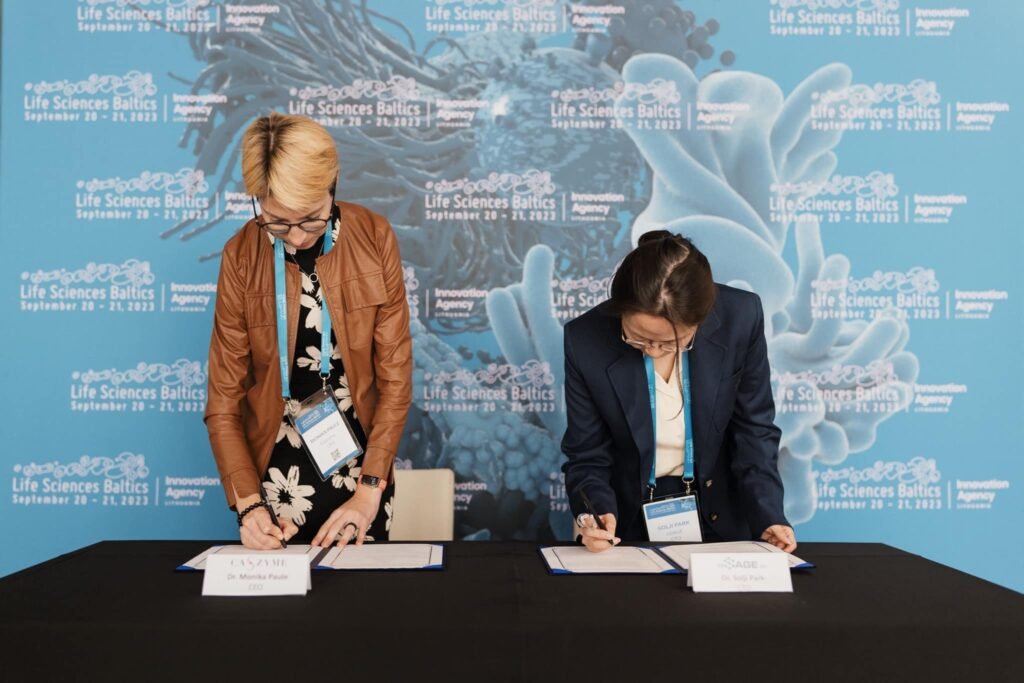
What is your primary strength as an ecosystem?
Lithuania has a robust digital infrastructure and technological prowess, creating a strong foundation for integrating digital health solutions. With advanced telecommunications and high internet penetration, alongside supportive regulations, the country encourages innovation in telemedicine, electronic health records and health information exchange.
Moreover, Lithuania benefits from a highly educated and skilled workforce, including healthcare professionals, researchers, engineers, and IT specialists. Emphasising education and ongoing professional development ensures a constant supply of talent equipped to drive innovation and excellence in healthcare technology.
The country’s regulatory framework is adaptable and forward-thinking, promoting innovation and entrepreneurship in healthcare. Regulatory agencies collaborate closely with industry stakeholders to simplify processes, facilitate market entry for innovative healthcare products and services, and uphold safety and quality standards, prioritising patient safety.
Additionally, Lithuania has notable expertise in gene editing, positioning itself as a potential leader in developing novel gene editing treatments. This expertise underscores Lithuania’s potential to advance healthcare through cutting-edge technologies and innovative approaches.
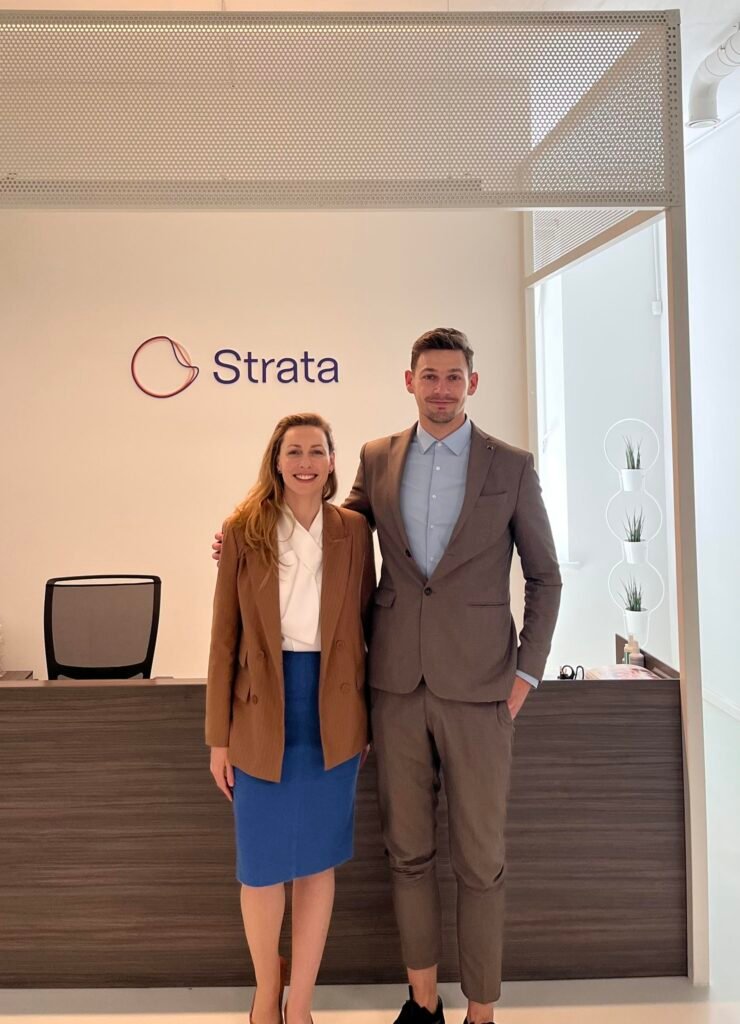
Which are the main hospitals in your ecosystem and which are the most active in your ecosystems?
There are over 25 hospitals over Lithuania, but we would like to recognise three main ones:
Vilnius University Hospital Santaros Klinikos. Santaros Klinikos is one of the largest and most prominent hospitals in Lithuania. As a part of Vilnius University, it plays a crucial role in providing advanced medical care, conducting research, and educating future healthcare professionals. With modern facilities and a multidisciplinary approach, Santaros Klinikos offers a wide range of specialised medical services to patients from across the country. The hospital is committed to excellence in patient care, innovation, and contributing to the advancement of medical science.
Kaunas Clinics (Hospital of Lithuanian University of Health Sciences). Kaunas Clinics is another major hospital in Lithuania affiliated with the Lithuanian University of Health Sciences (LSMU). It provides a broad spectrum of medical care, including specialized services in cardiology, oncology, neurology, orthopedics, and transplantation. Kaunas Clinics is recognized for its expertise in medical research and education, contributing to advancements in healthcare and training future generations of healthcare professionals. Furthermore, Kaunas Clinics houses the Nuclear Medicine Research Centre, which is on the verge of operational readiness with the imminent activation of Lithuania’s sole cyclotron. Additionally, the completion of the Human Biological Resources Centre (biobank) is underway. Notably, the forthcoming cyclotron will serve as a cornerstone facility in the Baltic states, while a smaller counterpart is situated in neighboring Latvia.
Klaipėda University Hospital. Klaipėda University Hospital is a leading healthcare institution in the western region of Lithuania. It offers a comprehensive range of medical services and rehabilitation.
